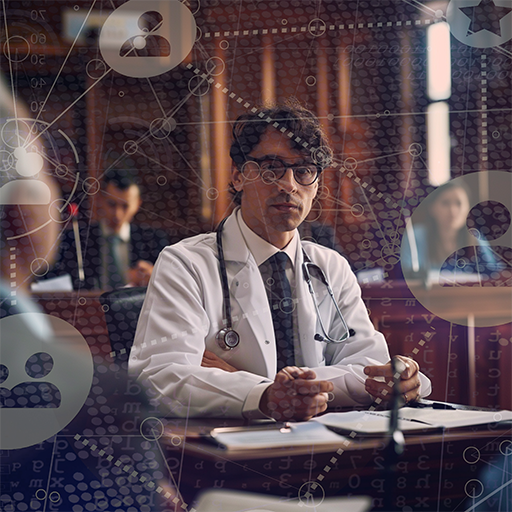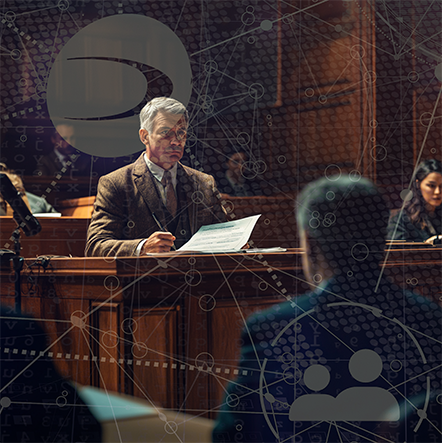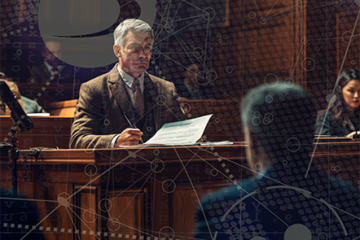Orthopedic expert witnesses play a vital role in motor vehicle accident injury cases. Their specialized medical knowledge helps attorneys and courts assess the severity of injuries, establish connections between the accident and the injuries, and determine appropriate compensation. Orthopedic expert witnesses provide objective, evidence-based insights that ensure fair case outcomes. This blog delves into how orthopedic experts contribute to motor vehicle accident litigation, focusing on injury assessment, damages, and expert testimony while also exploring their extensive training and the benefits they bring to legal cases.
Orthopedic Expert Witnesses and Injury Assessment
Accurately assessing injuries sustained in motor vehicle accidents is critical to any legal case. Orthopedic expert witnesses are indispensable in evaluating the full extent of these injuries, which commonly affect the musculoskeletal system.
Fractures and Dislocations
Orthopedic surgeons are highly trained in diagnosing fractures and dislocations, two of the most frequent injuries in motor vehicle accidents. Using diagnostic tools such as X-rays, orthopedic experts identify the precise location and severity of bone damage. In many cases, they also assess the need for surgical intervention, further physical therapy, or long-term care. Their detailed analysis helps attorneys understand the severity of the injury and its implications for the plaintiff’s future.
Soft Tissue Injuries
In addition to broken bones, many victims of motor vehicle accidents suffer from soft tissue injuries, including sprains, strains, and tears in ligaments and muscles. Orthopedic expert witnesses provide crucial assessments of these injuries, which may not be immediately noticeable but can have long-lasting effects on mobility and pain levels. Their evaluation includes determining the prognosis and treatment required, from conservative therapies to more invasive interventions.
Long-Term Prognosis
The long-term effects of injuries are critical to motor vehicle accident cases. Orthopedic expert witnesses help the court understand the plaintiff’s future medical needs, including chronic pain management, physical limitations, and potential surgeries. This information is vital when determining the appropriate compensation, particularly for non-economic damages like pain and suffering or diminished quality of life.
Establishing the Connection Between Accident and Injury
An orthopedic expert witness plays a critical role in motor vehicle accident cases by determining whether the accident directly caused the plaintiff’s injuries or exacerbated pre-existing conditions. Orthopedic expert witnesses perform a detailed review of medical records, diagnostic imaging, and clinical findings to differentiate between accident-related injuries and any prior medical issues.
Accident-Related vs. Pre-Existing Conditions
In many legal cases, orthopedic expert witnesses are called upon to evaluate the extent to which the accident contributed to the plaintiff’s injuries. For example, the accident might have worsened a person’s pre-existing back injury. Orthopedic experts determine the extent of aggravation and provide insights into how the injuries specifically relate to the motor vehicle collision, ensuring that any compensation awarded reflects the true extent of accident-related damages.
Diagnostic Evidence
Orthopedic experts rely heavily on diagnostic evidence, such as X-rays, MRIs, and CT scans, to provide a clear picture of the injuries sustained. These tools allow them to confirm the diagnosis and establish a clear link between the injuries and the accident. This objective, fact-based testimony is crucial in supporting or challenging claims about the plaintiff’s injury severity.
Quantifying Damages in Motor Vehicle Accident Cases
The testimony of an orthopedic expert witness is often instrumental in quantifying both economic and non-economic damages in motor vehicle accident cases. Attorneys rely on their specialized knowledge to provide accurate and credible estimates of the financial impact of the injuries.
Economic Damages
Orthopedic experts play a key role in calculating the medical costs of the plaintiff’s recovery. This includes current medical expenses—such as surgeries, rehabilitation, and medications—as well as future medical costs for ongoing care. Orthopedic expert witnesses provide an in-depth analysis of the plaintiff’s long-term medical needs, including the potential for future surgeries, long-term therapy, or assistive devices like crutches or wheelchairs. These projections help ensure that the compensation awarded reflects the full scope of the financial burden.
Non-Economic Damages
Orthopedic expert witnesses also contribute to the assessment of non-economic damages, including pain and suffering or loss of enjoyment of life. By explaining the long-term physical limitations or chronic pain resulting from the injuries, orthopedic experts help attorneys and the court determine how the injuries have impacted the plaintiff’s day-to-day activities. For example, if the plaintiff is unable to return to work or participate in recreational activities due to their injuries, an orthopedic expert witness can testify about how this diminishes their overall quality of life.
The Role of Orthopedic Expert Testimony in Court
Orthopedic expert witnesses not only provide detailed injury assessments but also testify in court to clearly explain complex medical concepts to judges and juries. Their ability to simplify medical jargon and present facts is crucial in helping non-medical professionals understand the full scope of the injuries sustained in a motor vehicle accident.
Explaining Medical Concepts
Orthopedic surgeons are adept at translating complex medical language into layman’s terms. This ensures that the court fully understands the extent of the injuries, the recommended treatments, and the long-term prognosis. For example, when explaining a spinal fracture, an orthopedic expert can break down the injury in terms that are easy for the jury to comprehend while still emphasizing the seriousness of the condition.
Providing Objective Testimony
An orthopedic expert’s objectivity is critical to their role in the courtroom. Their testimony is based on facts, medical evidence, and professional expertise, making it an invaluable resource for attorneys seeking to establish or refute claims about the plaintiff’s injuries. Orthopedic expert witnesses maintain impartiality, providing unbiased testimony that can greatly influence the result of a case.
The Training That Qualifies Orthopedic Surgery Expert Witnesses
Orthopedic expert witnesses are highly qualified medical professionals with extensive training in musculoskeletal health. Their journey to becoming an expert witness involves years of education, residency, and specialized fellowship training.
Education and Residency
Orthopedic surgeons typically complete a four-year undergraduate degree, followed by four years of medical school. After obtaining their medical degree, they enter a rigorous five-year orthopedic surgery residency, receiving in-depth training in diagnosing and treating musculoskeletal injuries. During this residency, they develop expertise in surgical techniques, injury management, and rehabilitation.
Specialized Fellowship Training
Many orthopedic surgeons go on to complete additional fellowship training in a subspecialty, such as trauma surgery, sports medicine, or spine surgery. This fellowship typically lasts one to two years and allows orthopedic surgeons to focus on specific types of injuries or treatments. This specialized training makes them qualified to assess complex injuries resulting from motor vehicle accidents.
Board Certification and Continuing Education
Orthopedic surgeons who serve as expert witnesses are often board-certified by the American Board of Orthopaedic Surgery (ABOS), a credential that requires passing both written and oral exams. In addition, they must participate in continuing education to stay knowledgeable about the latest medical advancements. This ongoing education ensures that orthopedic expert witnesses are always knowledgeable about the most effective treatments and technologies.
The Different Specialties of Orthopedic Surgeon Expert Witnesses
Orthopedic surgery is a broad field with several subspecialties, each of which brings a unique perspective to motor vehicle accident injury cases. The specific type of injury involved in the case may require different orthopedic expert witnesses.
Orthopedic Trauma
Orthopedic trauma specialists focus on treating severe musculoskeletal injuries, such as fractures and dislocations, which are common in high-impact accidents. These experts are skilled in complex surgical procedures and the management of multi-injury cases.
Spine Surgery
Orthopedic spine surgeons specialize in treating injuries to the spine, including herniated discs, fractures, and spinal cord injuries. Their expertise is critical in cases where plaintiffs suffer from debilitating back or neck injuries following a collision.
Sports Medicine
Orthopedic experts in sports medicine address injuries involving ligaments, tendons, and joints. In motor vehicle accident cases, these experts assess soft tissue injuries, including torn ligaments or rotator cuff injuries, which often occur when victims brace for impact.
Joint Reconstruction
Orthopedic surgeons specializing in joint reconstruction handle severe joint injuries, including those involving the knee, hip, or shoulder. Their expertise is valuable when determining the long-term impact of joint injuries and the potential need for joint replacement surgeries.
Common Physical Injuries from a Motor Vehicle Accident
Motor vehicle accidents can involve a wide variety of injuries, some of which are immediately apparent while others develop over time. The most common physical injuries include:
- Fractures and Broken Bones: High-speed collisions often result in fractures, with the arms, legs, ribs, and hips being particularly vulnerable.
- Soft Tissue Injuries: Injuries like whiplash, sprains, and ligament tears are common, especially in rear-end collisions.
- Spinal Injuries: Spinal cord injuries and herniated discs can result from the sudden force of a collision and often lead to long-term pain or disability.
- Head and Neck Injuries: Traumatic brain injuries (TBIs) and neck injuries are severe conditions that can have lasting effects on a victim’s cognitive and physical abilities.
How Different Subspecialties of Orthopedic Surgery Can Address Each Injury
Orthopedic expert witnesses from different subspecialties provide tailored evaluations and treatment recommendations based on the specific injury.
- Fractures and Broken Bones: Orthopedic trauma specialists are experts in treating fractures and dislocations. They assess the severity of these injuries and recommend the appropriate surgical or non-surgical interventions.
- Soft Tissue Injuries: Sports medicine specialists are skilled in evaluating soft tissue injuries. They provide insight into the necessary rehabilitation and recovery time for torn ligaments, sprains, and muscle strains.
- Spinal Injuries: Orthopedic spine surgeons focus on injuries to the vertebrae and spinal cord, offering expertise in treating herniated discs and spinal fractures that may result from motor vehicle accidents.
- Joint Injuries: Joint reconstruction specialists handle injuries to the major joints and are often called upon to assess whether a joint injury will require surgical repair or replacement.
The Benefits Orthopedic Expert Witnesses Provide to Motor Vehicle Accident Cases
Orthopedic expert witnesses provide several key benefits in motor vehicle accident cases, making them invaluable assets to attorneys and the court.
- Objective Medical Testimony: Orthopedic experts offer fact-based, impartial testimony that helps clarify the extent of the injuries and their impact on the plaintiff’s life.
- Detailed Injury Evaluations: Orthopedic surgeons conduct thorough evaluations, ensuring all injuries are identified and appropriately documented. Their analysis helps the court understand the full scope of the medical issues.
- Long-Term Prognosis and Treatment: By providing insights into the long-term effects of injuries, orthopedic experts help determine the future medical costs and treatment that may be necessary.
- Collaboration with Other Experts: Orthopedic surgeons often work alongside other expert witnesses, such as neurologists or biomechanical engineers, to provide a comprehensive view of how the accident and injuries are connected.
Conclusion: The Essential Role of Orthopedic Expert Witnesses in Motor Vehicle Accident Legal Cases
Orthopedic expert witnesses are critical in legal cases involving motor vehicle accidents. Their specialized training, objective testimony, and detailed injury assessments help attorneys build strong cases while ensuring that courts understand the full impact of the injuries. Whether for the plaintiff or defense, orthopedic expert witnesses play an integral role in providing clear, factual insights that lead to fair and informed case outcomes.
Read more:
- National Library of Medicine | Expert Witness
- American Board of Physician Specialties | Orthopedic Surgery

Are you an Attorney?
We’re here to help! Let us connect you with qualified professionals who are available for depositions and testimonies. Our database includes over 15,000 experts with a wide range of specialties. Reach out today to fast-track your search for an expert witness.





